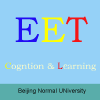-
Social learning theory(社会学习理论)
普通类 -
- 支持
- 批判
- 提问
- 解释
- 补充
- 删除
-
-
Preface前言
OBSERVATION AND MODELING of behavior, attitudes, and emotional reactions of others is the basis of social learning. Originally developed by Albert Bandura in the late 1970’s, Social Learning Theory suggests that most human behavior is learned observationally from others (Bandura, 1994). In this article we will examine examples, processes, and applications of social learning.
观察和模仿他人的习惯、态度以及情绪反应是进行社会学习的基础。 20世纪70年代后期,艾尔波特●班杜拉提出了社会学习理论,该理论认为大多数的人类行为是通过观察他人而获得的。这篇文章我们将介绍社会学习的案例、过程及应用。
-
Examples of Social Learning 社会学习的实例
We are first introduced to the process of social learning as children and then as young adults. Children who mimic various behaviors of their parents are engaged in social learning. One of the key principles of social learning theory is that individuals will be more likely to adopt modeled behavior if it is activity they value and if the model holds admired status.
当还是儿童和青少年的时候,我们就开始进行社会化学习了。儿童通过模仿父母不同的行为举止来进行学习。社会化学习理论最重要的原则之一就是个体乐意模仿自己认为有意义的活动或者敬佩的人。

When a mother is getting ready for a night out and finds her daughter trying on her shoes. The daughter is emulating her partly because of the admiration she holds for her mother.当一个妈妈晚上准备出去参加派对时,她发现自己的女儿正在穿她的鞋子。由于女儿对自己的妈妈充满敬佩,所以女儿就会有模仿妈妈的行为发生。

-
Processes Underlying Social Learning社会学习的过程
There are four processes that form the basis of Social Learning Theory. These processes are Attention, Retention, Motivation, and Motor Reproduction.
注意、保持、动机和重现四个要素组成了社会化学习的四个过程。
Attention注意
This process surrounds the acquisition of the attention of the learner. Acquisition can be based on such factors as sensory capacity, arousal level, and past reinforcement.
注意过程是学习者注意力的习得。学习者的感知能力、唤醒水平以及以往经验会影响学习者注意的因素。
Retention保持
This process involves the learner accessing symbolic coding of the behavior that has caught their attention.
保持过程是学习者对引起其注意的行为进行符号编码。

Motivation动机
This process includes external, vicarious and/or self-reinforced motivation.
动机过程包含外部动机、替代动机以及自我提升的动机。

Motor Reproduction重现
This process includes the physical reproduction of the observed activity through physical capability, self-observation and feedback.
重现过程是通过个人努力、自我监控与自我反馈,学习者对观察到的行为的重现。
-
Application of Theory理论应用
An easily envisioned example of social learning in the workplace is in an on-the-job training setting. Here a supervisor either explicitly or implicitly shows a new employee a physical task to be replicated for the employee’s job performance. Often this physical performance may be quite foreign to the new employee.
工作场景中社会化学习最容易想到的例子是在职培训。管理者或明确或含蓄地会向新雇员介绍他们在工作中可以效仿的工作方式。对于新雇员来说,这些可能是无关紧要的。

However, in most cases after a few run throughs and attempts on the employee’s part they are able to complete the task by envisioning the symbolic codes they developed consciously or unconsciously of the earlier observed model performance.然而,经过一段时间的运转和尝试后,很多新雇员都可以通过回忆之前有意或无意观察到的示范行为,以完成任务。
.jpg)
-
Conclusion结论
In a workplace setting social learning can be a powerful force to train employees, yet employees can also use social learning to adopt behaviors that may be less than desirable from the employer’s perspective. These behaviors could be learned from co-workers who are not necessarily going to be the next employee of the month.
Employers and trainers need to analyze what is truly valued behavior in the company and why. Further, they need to understand that if proactive steps are not taken to engage in positive social learning, employees will be engaged in this learning on their own with someone who may be admired by the employee but less than admired by company management.-
More Information更多信息
To learn more on Social Learning Theory or other learning theories go to the Theory Into Practice database or find out more on Bandura.
想学习更多有关社会学习理论或其他学习理论的知识,您可以在Theory Into Practice数据库中检索或查找更多班杜拉的著作。
-
Reference参考文献
Bandura, A.(1994). Social learning theory. From Theory into practice database. (Kearsley, G.). Retrieved March 25, 2003 from the World Wide Web: http://tip.psychology.org/bandura.html
-
Author作者
Joel Stewart, Graduate Student, San Diego State University
-
-
- 标签:
- 百科全书
- social
- learning
- 学习者
- 注意
- 学习
- 社会
- 社会学习理论
- 教育技术学
- 过程
- employees
- theory
- 行为
-
加入的知识群:



.jpg)

学习元评论 (0条)
聪明如你,不妨在这 发表你的看法与心得 ~